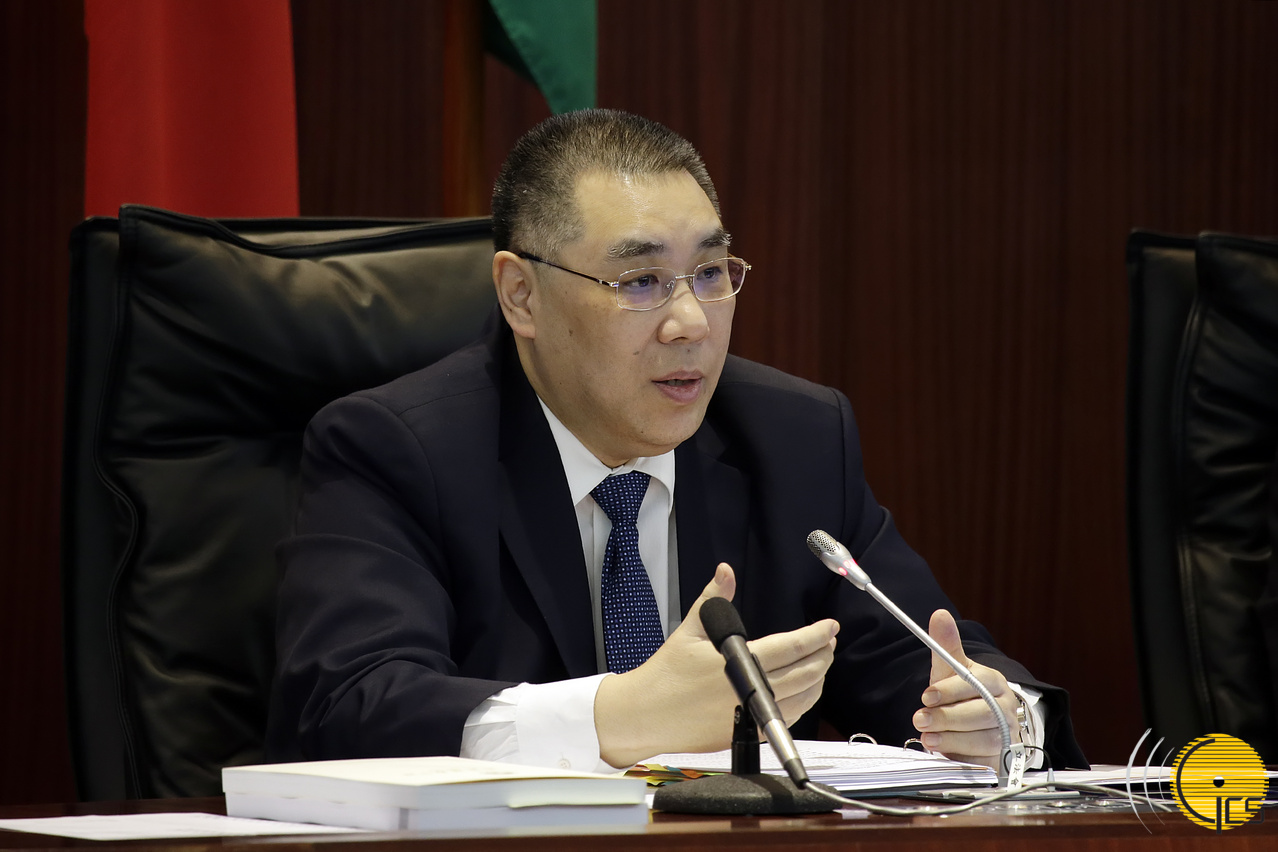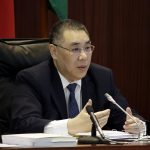 The Chief Executive, Mr Chui Sai On, speaks at a Legislative Assembly session concerning Government policies for 2019.
The Chief Executive, Mr Chui Sai On, speaks at a Legislative Assembly session concerning Government policies for 2019.
The Government would, in strict accordance with the principle of fiscal prudence required by the Basic Law, clearly lay down the guidelines for the allocation of fiscal surpluses. This was to ensure the implementation of long-term mechanisms and to secure fiscal reserves at minimum risk, said the Chief Executive, Mr Chui Sai On. He was speaking this afternoon in response to legislators' questions about the Government's fiscal policy.
Mr Chui also told members of the Legislative Assembly that the Government had made preparations for infrastructure investments in the Guangdong-Hong Kong-Macao Greater Bay Area (Greater Bay Area).
Regarding the development of a long-term mechanism for fiscal allocation, Mr Chui pledged that the Government would clearly lay down in the coming year the guidelines for the allocation of fiscal surpluses. This was in order to ensure the effective implementation of the six long-term mechanisms for social security: housing; healthcare; education; cultivation of local talent; and either disaster prevention or, if necessary, disaster mitigation.
The Chief Executive said there were many variable factors in relation to the local economy. They included unanticipated events such as disaster or the spread of infectious disease. Nonetheless, Macao's system of fiscal reserves – namely basic reserves, surplus reserves and foreign reserves – was designed to withstand the sort of adverse conditions associated with uncertainty, he stated. Mr Chui was confident about the development of a long-term mechanism for fiscal allocation.
Responding to legislators' questions about the investment returns of the Government's fiscal reserves, Mr Chui said the Government would closely monitor market changes, in order to reduce risks.
He pointed out that the Government had adopted a defensive investment strategy since May this year, by reducing in its portfolio the proportion of investment in share equities to 17 percent, from 20 percent earlier. It was focusing on bonds with strong credit ratings and yielding high interest rates, Mr Chui added.
Meanwhile the Government had gradually increased its hedging against foreign exchange risk, in order to enhance its overall management of risk and to manage risk in relation to its foreign currency assets.
According to the Chief Executive, preliminary forecasts showed that the Government would have positive investment returns on its fiscal reserves in terms of the first three quarters of the year.
Mr Chui added that the Government would keep a close watch regarding the impact on Macao of global economic factors. The Government would make appropriate preparations to: ensure financial stability; increase public investments; and secure Macao's fiscal reserves with a prudent and defensive investment strategy.
He underlined the fact that Macao had accumulated considerable fiscal reserves and therefore these should be managed with great care and should be invested in economic development.
In line with President Xi Jinping's suggestion that Macao should integrate with the national economy, Macao had set up – with Guangdong Province – a cooperation development fund with an investment capital of 20 billion renminbi that guarantees the principal amount and yields interest, as well as providing an exit mechanism.
Mr Chui said that Guangdong and Macao were pleased with the impact of the fund. The Government would set up similar funds with other partners if opportunities arose. He conceded that it was not easy to find suitable partners.
Regarding the development of the Greater Bay Area, Mr Chui said that the Government would launch a series of infrastructure investments in the area once the master-plan for the Greater Bay Area was published.
Meanwhile he said the Government would help local small- and medium-sized enterprises to invest in the Greater Bay Area.
Commenting on the Wealth Partaking Scheme, Mr Chui said that it was a means for sharing the fruits of economic development with the public. He noted that a fiscal surplus of 40 billion patacas justified a rise in the amount paid out annually per Macao ID holder under the scheme.


